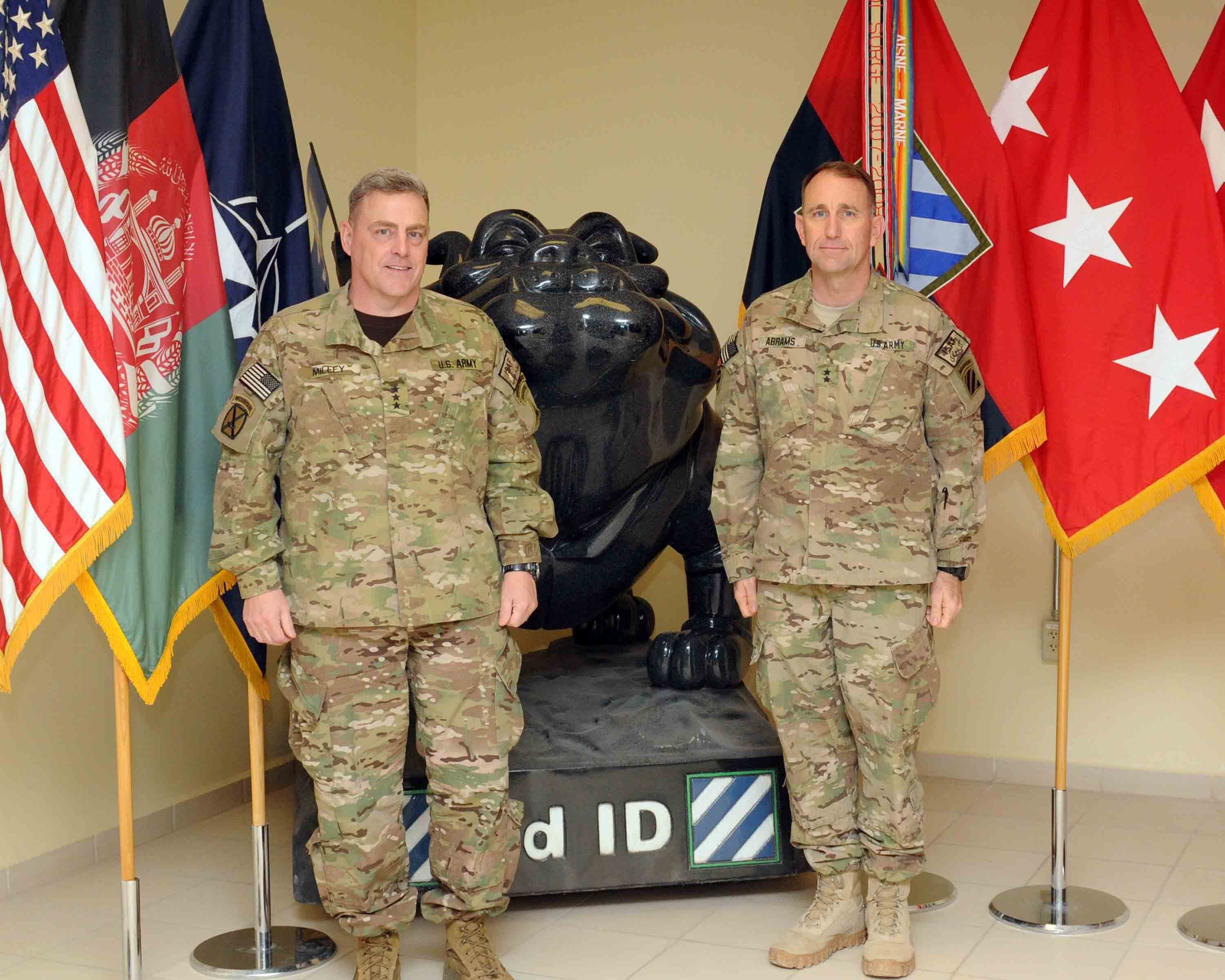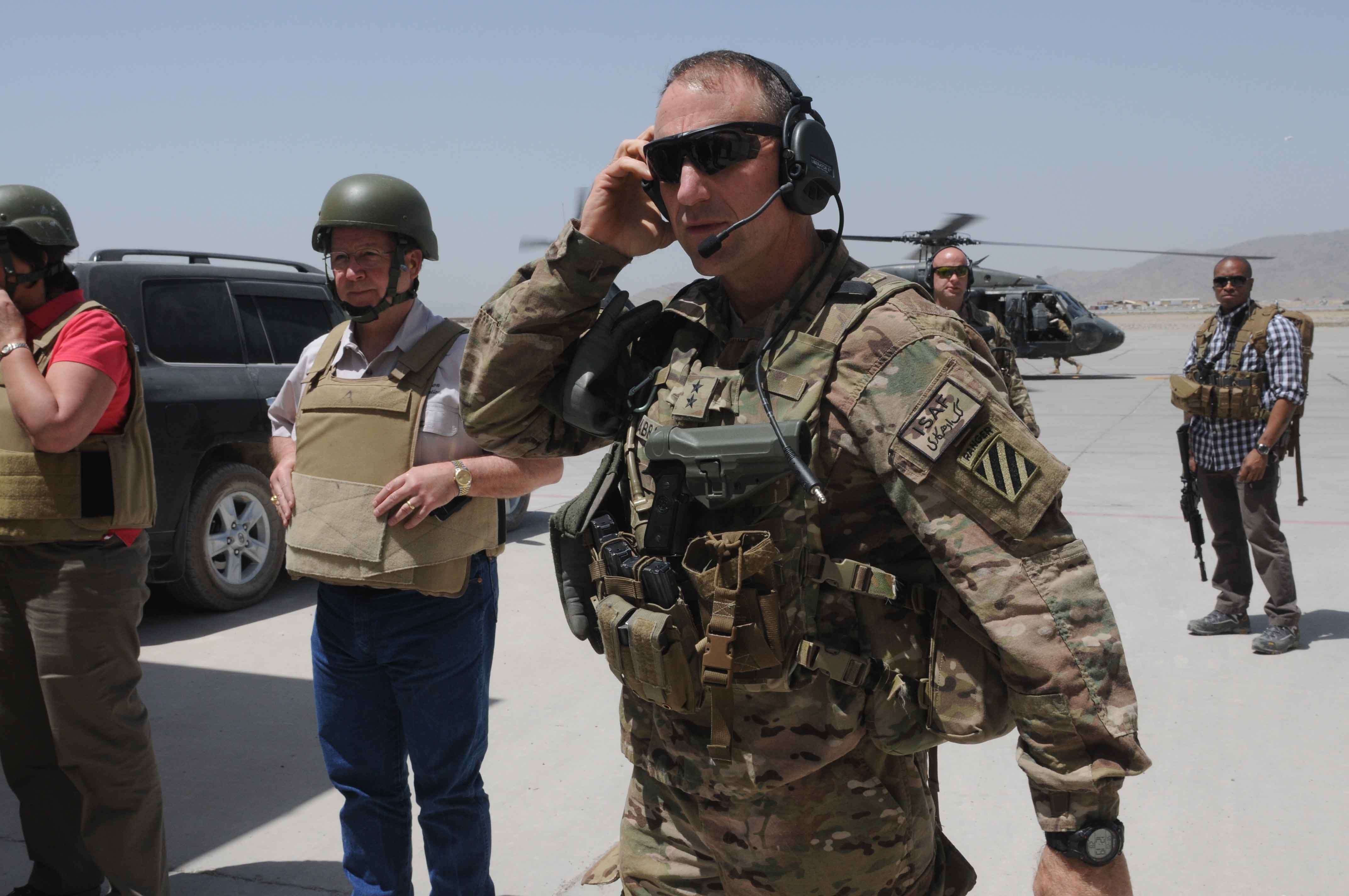The new FORSCOM leader last served as senior military adviser to the secretary of defense, a position he'd held since summer 2013. Before that, Abrams commanded 3rd Infantry Division; his Twitter handle remains @dogfacesoldier.
Abrams graduated from the U.S. Military Academy in 1982, according to an official online bio, and holds master's degrees from Central Michigan University and the Army War College. His extensive command experience runs from leading a 1st Cavalry Division company during Operation Desert Storm to serving as commander of International Security Assistance Force Regional Command-South as a two-star general.
Milley, then commanding general of ISAF Joint Command, presided over Abrams' departure from the post in July 2013, when 3rd ID commanders gave way to 4th ID leaders in the region.

Then-Lt. Gen. Mark Milley, left, and then-Maj. Gen. Robert Abrams pose during Milley's visit to Kandahar, Afghanistan, in February 2013. Abrams replaced Milley as head of Army Forces Command on Aug. 10 as Milley prepares to take over as Army chief of staff.
Photo Credit: Staff Sgt. Ashley Bell/Army
Gen. Creighton Abrams Jr. served as Army chief of staff from October 1972 until his death in September 1974. An iconic World War II tank commander, the M1 tank that debuted in 1980 bears his name.
The largest of the Army's commands, FORSCOM includes more than 800,000 soldiers across the country.





